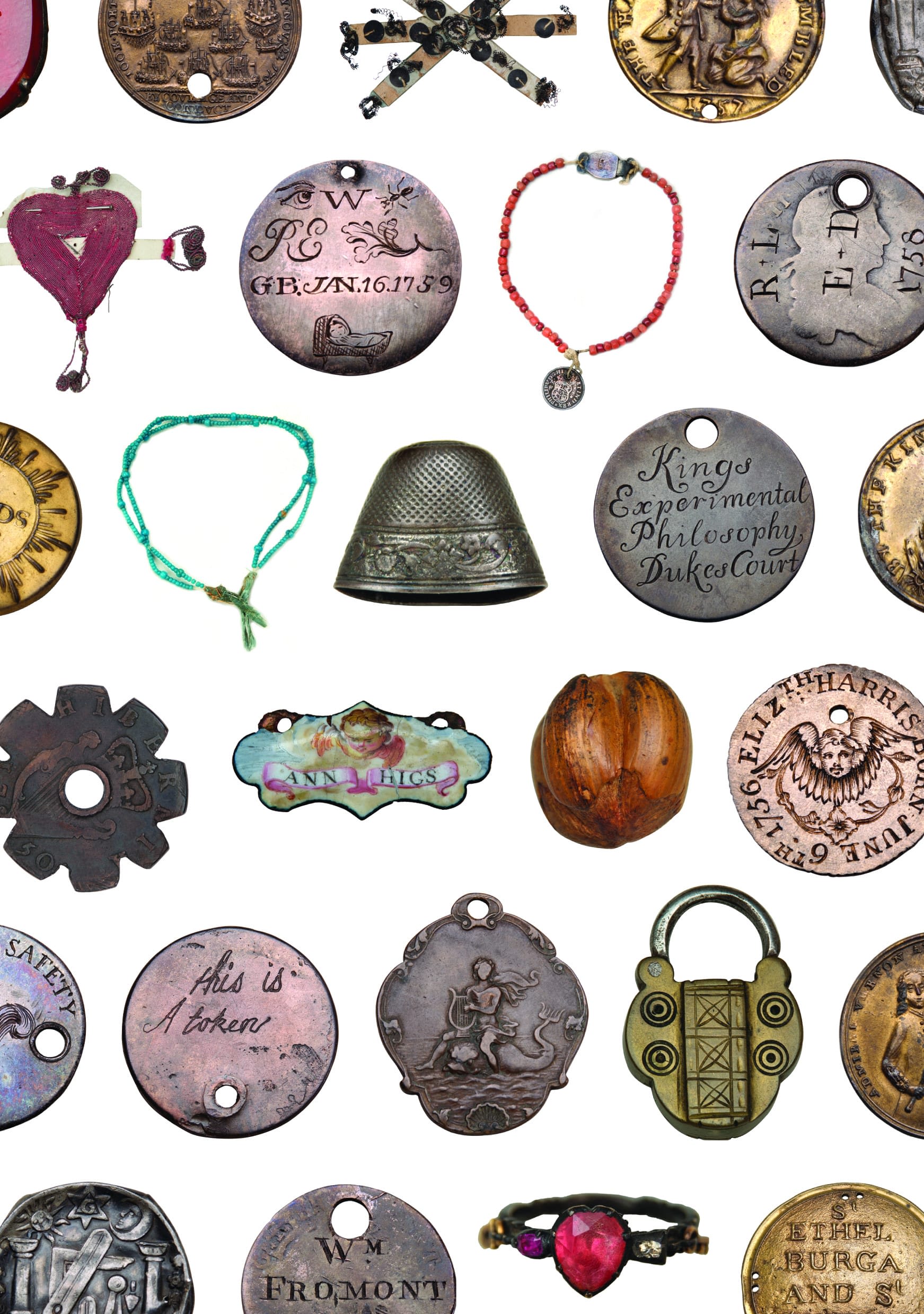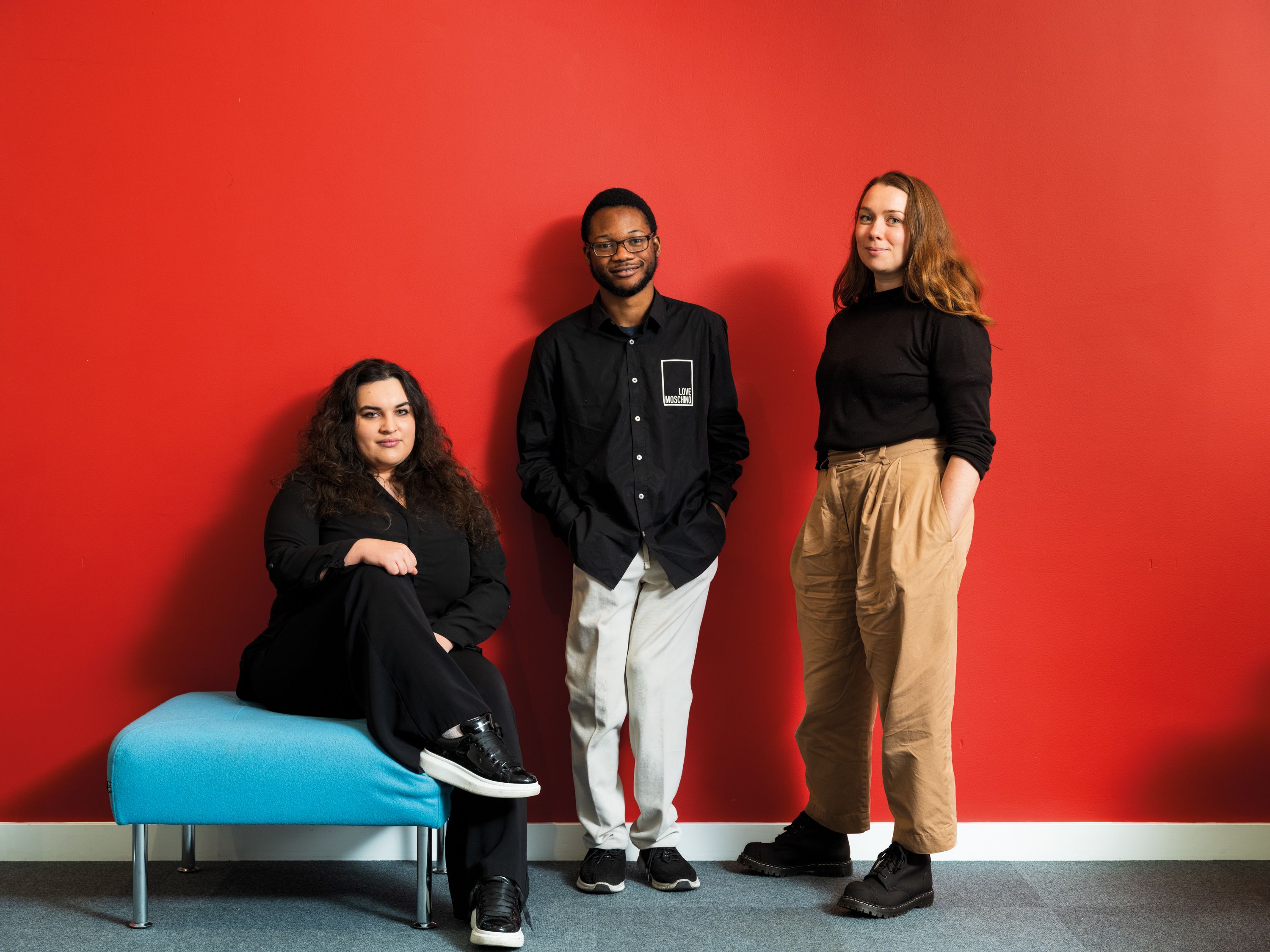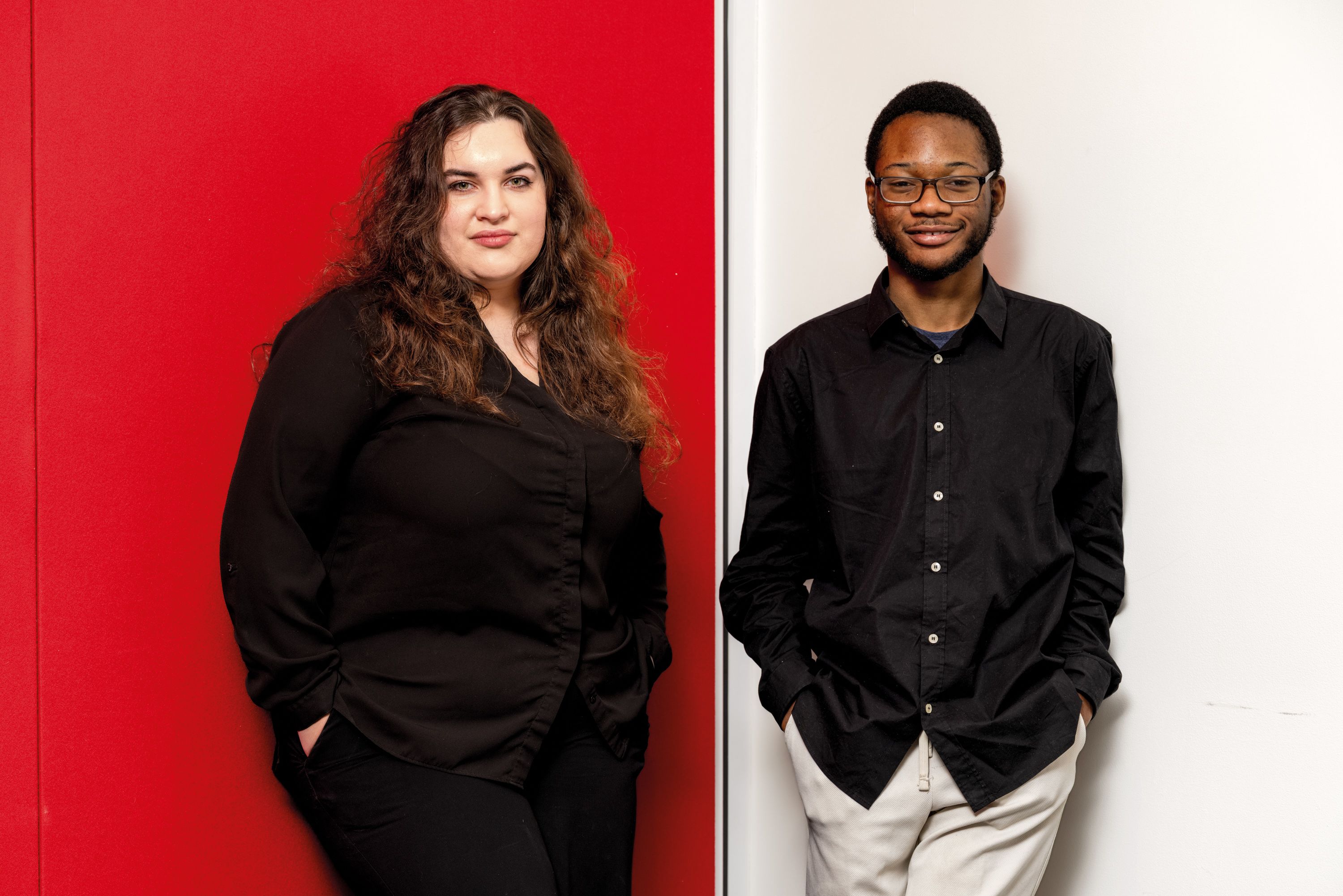A promise made: building better, more caring systems
Designing fair and functioning asylum systems is one of the great challenges of our age. James Baggaley speaks to young people, showing how, through respect and mutuality, we can create new ways to foster understanding and care.
Anyone who has been to the Foundling Museum, the former hospital that took in orphans left by parents who could no longer care for their children, will remember the ‘tokens’. Small shapes cut from cheap metals, etched with symbols and lettering. Each one had a replica held by the parent who had been forced through circumstance or fate to leave their child at the Foundling Hospital. The other was kept with the child, with the intention that, if the parent’s circumstances were to change, they could return and claim their child.
This small forget-me-not was a bureaucratic yet deeply personal link between child and parent—a Georgian paper trail. A token given with the possibility of a promise: ‘I shall return’.
Today, the charity Coram stands on the grounds of the former Foundling Hospital. Taking its name from the hospital’s founder, Thomas Coram, the charity has operated since 1739, supporting hundreds of thousands of children, young people, and families every year. The longest-serving children’s charity in the UK has seen governments, political movements, and monarchs come and go. And with the changes, it has adapted to the shifting demands of the time.
Yet what has remained at its core has been an approach grounded in an understanding of the lives of the children it works to support and advocate for. A key part of this work is allowing children and young people space to express their fears, concerns, and hopes for their futures, helping to shape Coram’s approach to designing services and building wider coalitions.
Amina and Abdullahi, two members of Coram’s Young Citizens group, make clear how a participatory approach has empowered them in their own lives.
“For me, the Young Citizens Programme at Coram really empowered me - not just to have a voice in my own life, but also to work with others, and those less fortunate, to build a better system.”
For Abdullahi, the challenge of navigating the asylum process at a young age left him frustrated. After finishing university and wanting to get on with his life, he applied for jobs but quickly realised he was unable to work due to his ongoing status as an asylum seeker.
“It was really gut-wrenching and sad for me. I’d got this dream job coming out of university, but it felt like being back at square one, without a sense of a future.”
In a similar way, Amina was energised by the injustices she saw within the system: how it seemed to act with indifference but also left both applicants and those who sought to process applications frustrated and lost. The system did not seem to work for either child or bureaucrat.
For Amina, it was her experience that pushed her to take action.
“We just have our story in our pockets. That’s as far as our riches and baggage go. It’s interesting - we want to carry all of our lived experience because that brings knowledge and information,” she says.
“It’s not about considering a story or paperwork or status - it’s about considering or not considering a human life.”
It should shock us that children, many of whom will be in school, are grappling with these questions. They have become another part of the ongoing political battle around the asylum system. Yet, beyond numbers and rhetoric, there are some very simple ways to improve the lives of children for whom the system has been a lifelong endeavour to navigate.
“The system doesn’t see you as a person, but rather as a reference number, and this leaves us lost within a system not designed to help us build better lives,” Amina says.
It’s the very reason the Young Citizens group was brought together: to help improve lives by highlighting the very ordinary challenges facing young asylum seekers. The participants describe the asylum system as dehumanising and bureaucratic, reducing individuals to “reference numbers.”
Many of those within the system criticise systemic inefficiencies, delays, and the lack of trauma-informed processes, with many of the young people having gone through brutal experiences at a young age. They call for a more human-centred approach, similar to the kinds of systems we’ve explored at the UCL Policy Lab in previous work on reforming the state.
“Many liberally-minded people think of the state as the solution to our country’s problems”, UCL Policy Lab Director Marc Stears remarks, “but the experiences of people like Amina show us that at present it can just as often be the source of injustice as the solution.”
What might a new system look like?
Well, one way is to build in the kind of advisory and lived experience role that Young Citizens groups allow—ensuring that any conversation can reference real lives, processes, and possibilities for change. This allows us to take the heat and abstraction out of these deeply charged areas of policy.
And one way the group has sought to do this is to map their own experiences of the asylum system by creating a board game. The game allows those who work or design the system to gain an understanding of the impacts of certain bureaucratic forks in the road—the snakes and ladders of being a child in Britain’s asylum system.
“We invented this game where young people and professionals would play different roles within the asylum system. Imagine role-playing with Monopoly in a way—we had different stations in a room, just like a judge, a law firm, the social services, and the Home Office,” Amina says.
What strikes you from looking at the steps in the game is how often the system creates bottlenecks or challenges which help no one. This impacts both children and those who are working to process applicants. Through projects like Young Citizens, Coram hopes to help leaders, both local and national, to create better, more effective systems, improving lives and, in the end, saving money in the short and long-term.
The frustration that builds within the system is obvious, as Abdullahi makes clear: there is another way.
“We need to be reached out to, and we need to be approached— there is a culture of examination, not a culture of understanding.”
Amina and Abdullahi both speak passionately about how they’ve been empowered to engage with policymakers and those working within the system, building relationships which can sustain the daily personal and political challenges of existing within the often painful and endless asylum system.
And what does hope look like in the long term? For Amina and Abdullahi, it is about building space for understanding, respect, and human dignity.

“We hope our work can help people see that we are not just ‘your clients’ or a problem, not just numbers to get done, but we are humans with hopes.”
They advocate for creating pathways where young migrants can contribute positively, challenging the narratives undermining their potential. The participants express hope for a reimagined asylum system built on fairness, understanding, and respect for human dignity.
In the end, it is structures of shared understanding that create a capacity for long-term change.
When we look at disagreement and divisions in approaches to asylum and refugees, we can all see where an approach grounded in human experience would be an improvement on one which considers numbers or systems without an understanding of the humans within them.
As our world changes and conflict and challenges fester, there will be an ever greater need for empathetic, human approaches to advocacy and policy design. The kind of work Coram is pioneering will be vital to creating and understanding these new approaches.
This essay was first published in A Radical Reconnection, Edition 8, UCL Policy Lab Magazine.
Find out more about Coram's work here.


